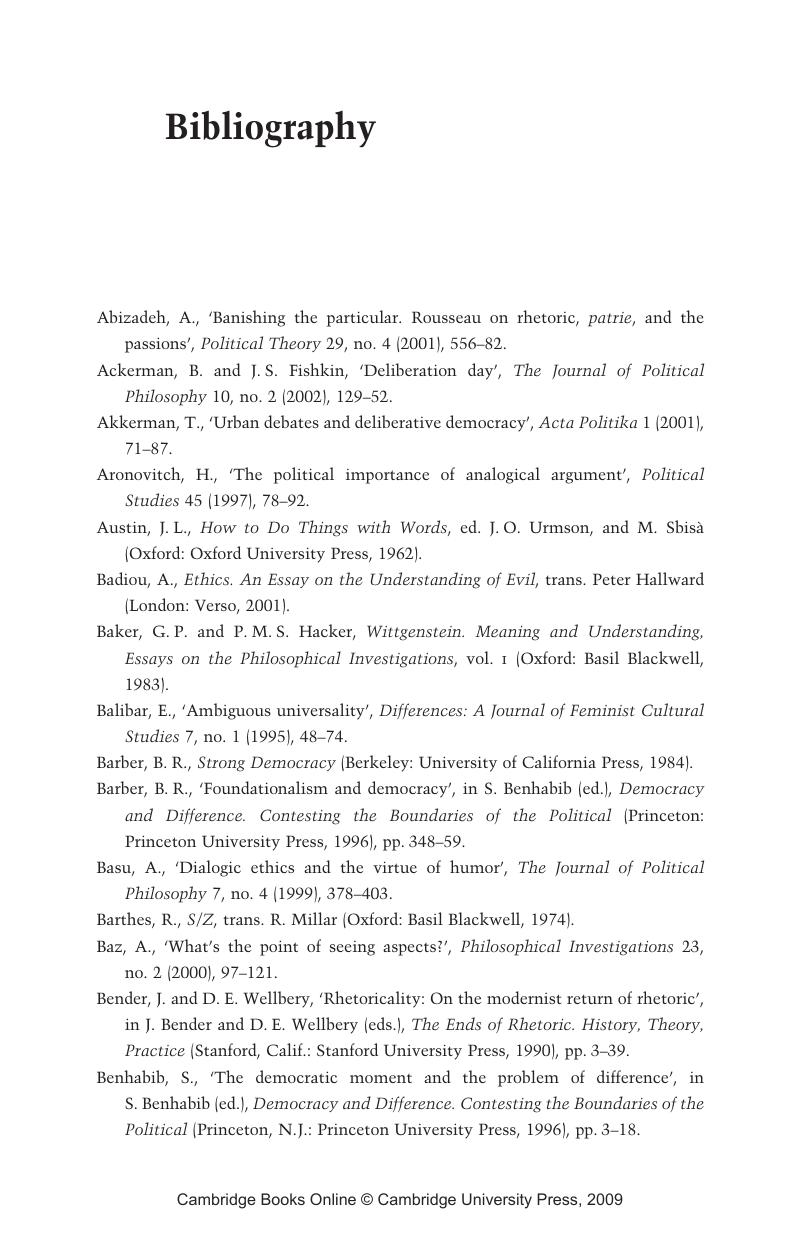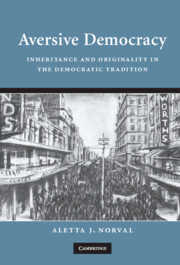Book contents
- Frontmatter
- Contents
- Acknowledgements
- Introduction: towards an aversive account of democracy
- 1 Democracy, universalization and (dis)agreement
- 2 Democratic argumentation: rhetoric and imagination
- 3 Democratic identification and aspect change
- 4 Democratic subjectivity: the promise of democratic community
- 5 Conclusion: aversive democracy – exemplarity, imagination and passion
- Bibliography
- Index
- References
Bibliography
Published online by Cambridge University Press: 22 September 2009
- Frontmatter
- Contents
- Acknowledgements
- Introduction: towards an aversive account of democracy
- 1 Democracy, universalization and (dis)agreement
- 2 Democratic argumentation: rhetoric and imagination
- 3 Democratic identification and aspect change
- 4 Democratic subjectivity: the promise of democratic community
- 5 Conclusion: aversive democracy – exemplarity, imagination and passion
- Bibliography
- Index
- References
Summary

- Type
- Chapter
- Information
- Aversive DemocracyInheritance and Originality in the Democratic Tradition, pp. 215 - 229Publisher: Cambridge University PressPrint publication year: 2007

